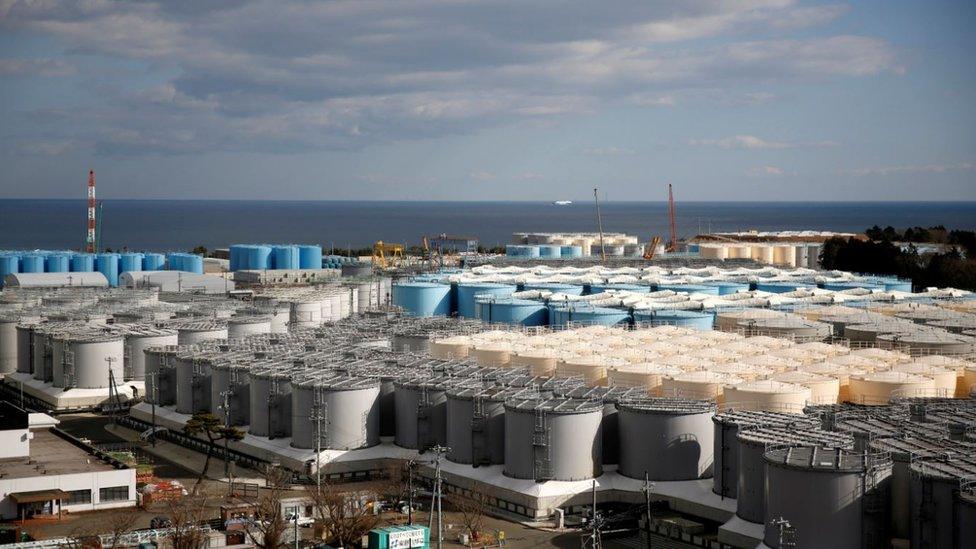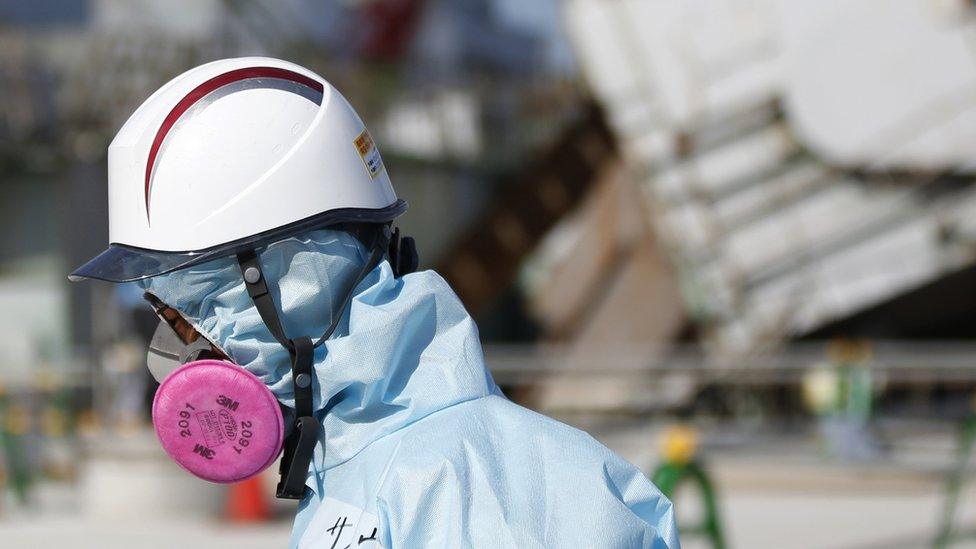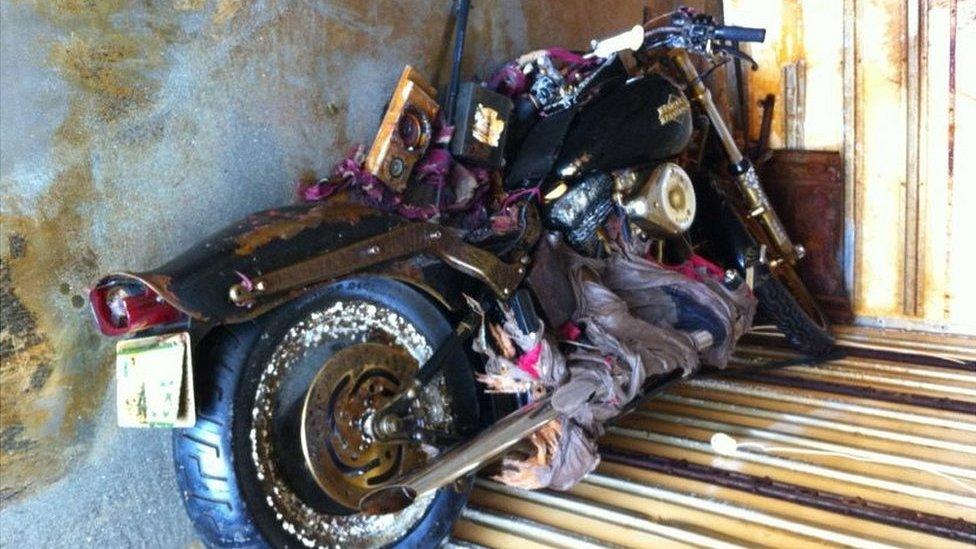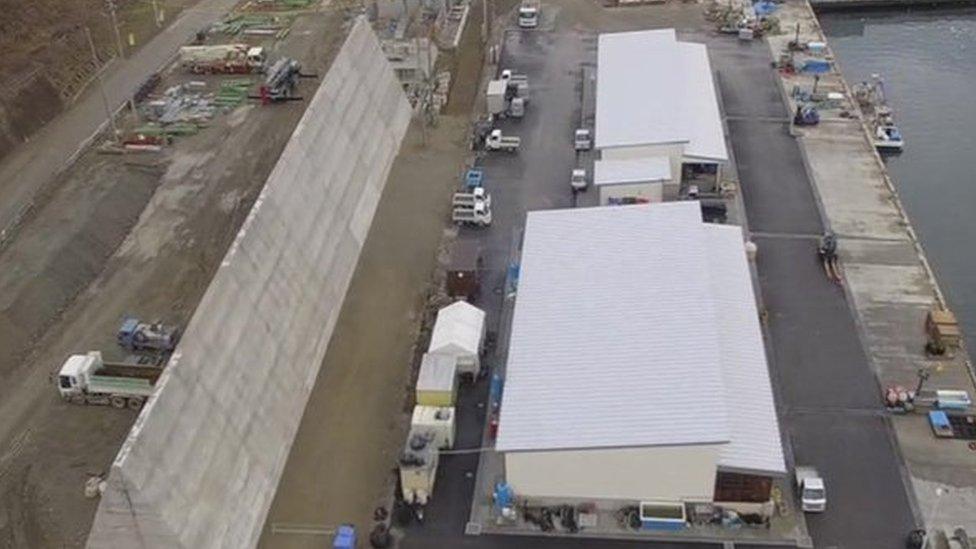Fukushima: Radioactive water may be dumped in Pacific
- Published

The storage tanks for contaminated water are filling up and space will run out in 2022
Japan's environment minister says contaminated water from the Fukushima nuclear plant may have to be released into the ocean because storage space will run out in 2022.
More than a million tonnes of water that has been used to cool melted reactors is kept in giant tanks.
Fisherman's groups are strongly opposed to the idea but many scientists say it would pose a low risk.
The government said a final decision had not yet been taken.
Reactor buildings at the Fukushima power plant were damaged by hydrogen explosions caused by the earthquake and tsunami in 2011. Three reactors melted down.
The Japanese government decided that the area would be cleaned in a vast operation which will take many decades to complete.
Rupert Wingfield-Hayes returns to Fukushima
For the last eight years around 200 tonnes of radioactive water have been pumped out of the damaged reactor buildings every day.
Most of the radioactive isotopes have been removed using a complex filtration process. But one isotope, tritium, cannot be removed so the water has been stored in a huge tanks which will fill up by 2022.
There has long been a plan to dump the water in to the Pacific ocean and the Environment Minister Yoshiaki Harada has now said that he supports the plan.
Many scientists say the water would quickly be diluted in the vastness of the Pacific Ocean, and that tritium poses a low risk to human and animal health.
But the BBC's Tokyo Correspondent Rupert Wingfield-Hayes reports that this does not mean the controversial plan will happen.
Fishermen's groups are strongly opposed to it and the South Korea government has made it clear if Japan goes ahead it will further damage an already fraught relationship.
The International Atomic Energy Agency says Japan has to make a decision about what is going to happen to the contaminated water urgently.
- Published11 March 2018

- Published9 March 2016

- Published10 March 2016
